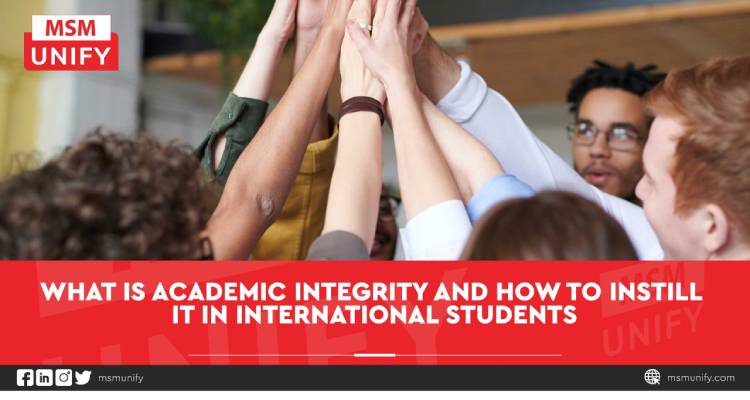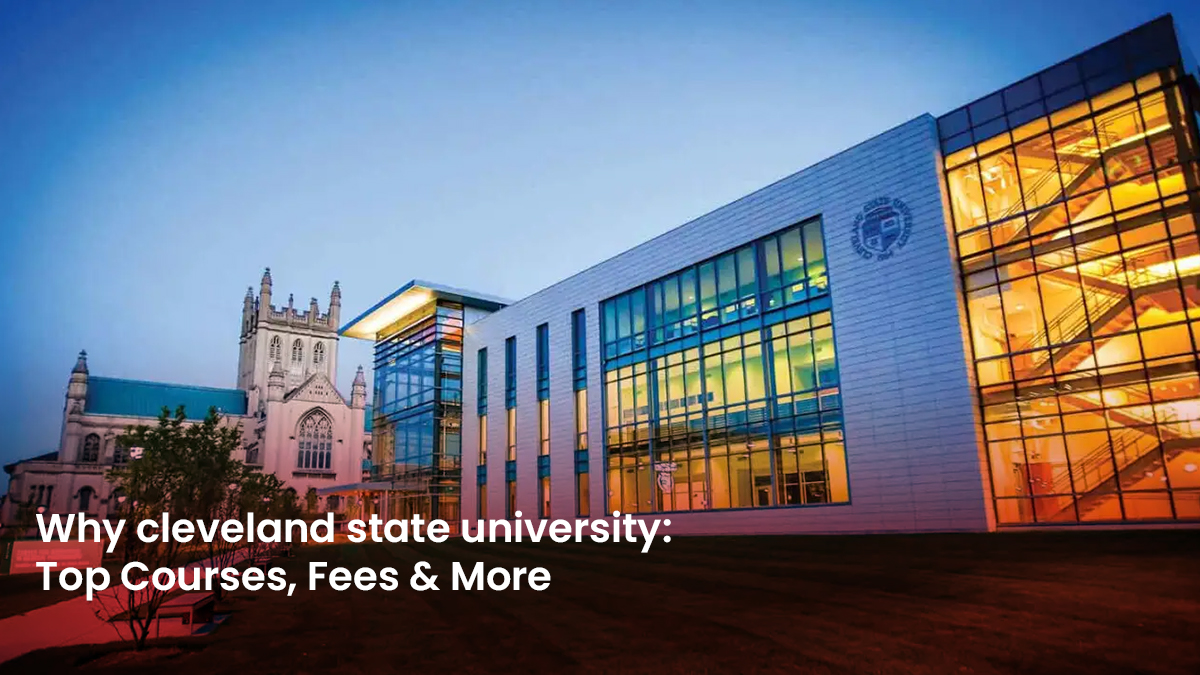As international students embark on a new life abroad, there are rules and principles they need to follow to be successful. Each college, university or institution has a different academic workload expected out of students. This varies depending on the program chosen. Pressure from all aspects may burn students out. Sometimes, there is little time for piles of projects and papers to be done right away. This can be overwhelming for most international students who are adjusting to a new land, culture, and environment. However, no matter how hard things may seem, it is always expected to do schoolwork with all honesty and integrity.
Academic Integrity: Moral Code of the Academe
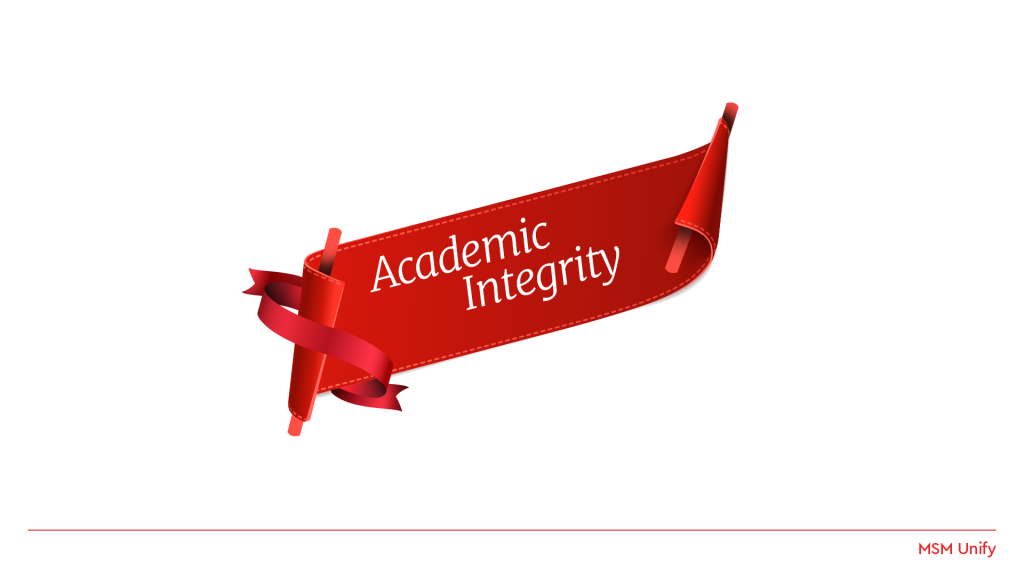
Aside from examinations, postgraduate students will encounter a lot of paperwork to complete a specific field of study. This entails writing thesis projects, reports and problem sets. It is expected that each student must perform to his or her best academic skills for a positive exchange of learning between professors and other colleagues. With that, it has to be done with academic integrity.
Academic integrity means putting shared values between the higher educational institution and entire academic community into practice. This entails being truthful, honest, fair, and taking responsibility for the work done for each course.
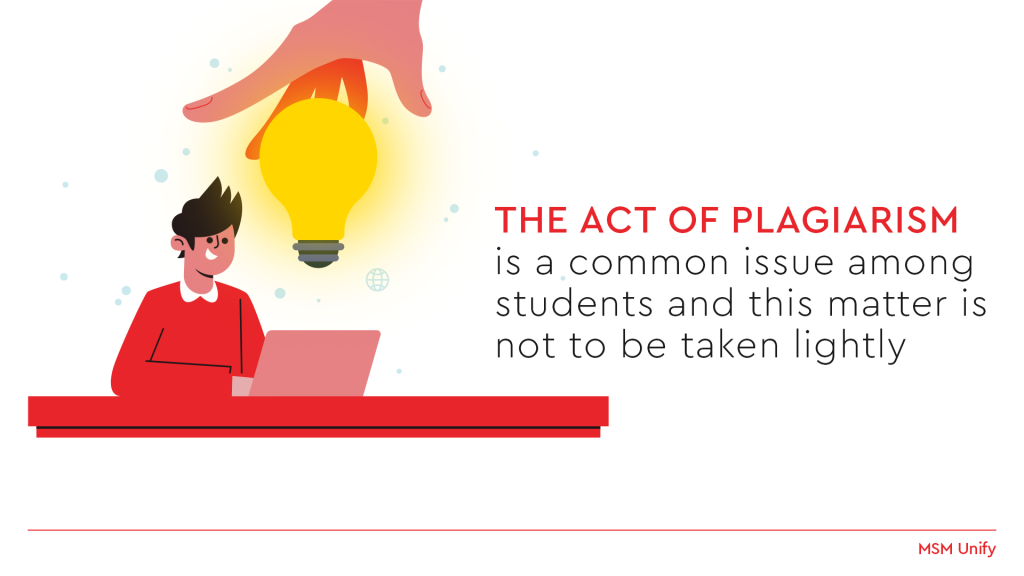
The act of plagiarism is a common issue among students and this matter is not to be taken lightly. In countries like the US, formally acknowledging the author of a particular article is crucial to any submitted paperwork in a university or college. Though this may not be well practiced in other countries, knowing when to give a formal and correct citation of a source is important. Cultural differences then is one of the challenges when it comes to upholding academic integrity.
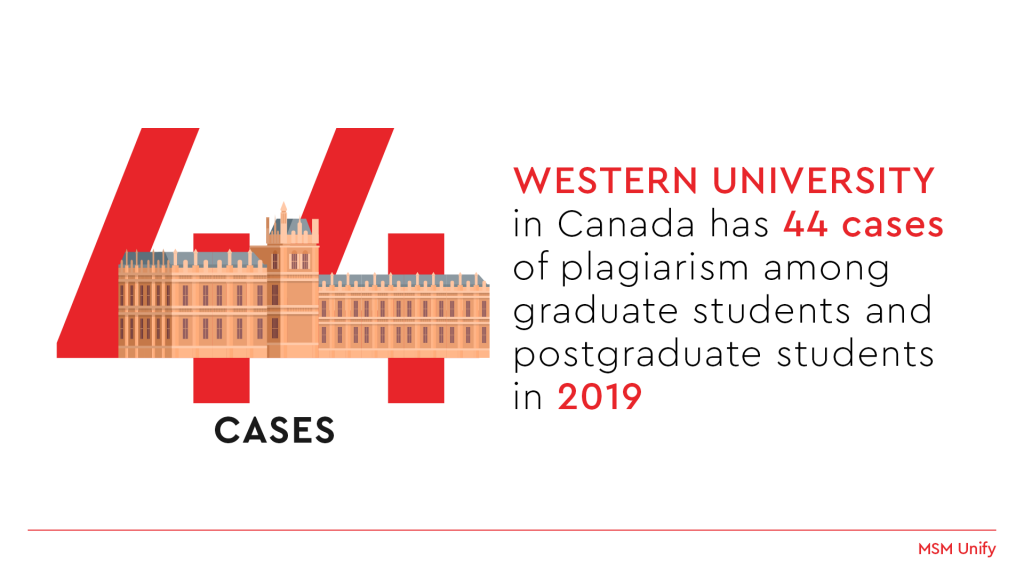
In Canada, Western University recorded 44 cases of plagiarism in 2019, which involved graduate and postdoctoral students. This defies the claim that seasoned students, such as the graduate students, should know better about plagiarism even during their undergraduate years. It is not a usual occurrence in postgraduate students to cheat or plagiarize as they fully know that taking up further studies will lead them to their career. Cheating their way will only penalize them once caught red-handed. Furthermore, this will have a negative impact on their profession or career path.
The Essential Pillars of Academic Integrity
Academic Integrity has five fundamental values that students must uphold during their studies abroad. These values are needed in order to graduate as ethical students and soon to be professionals in the world.
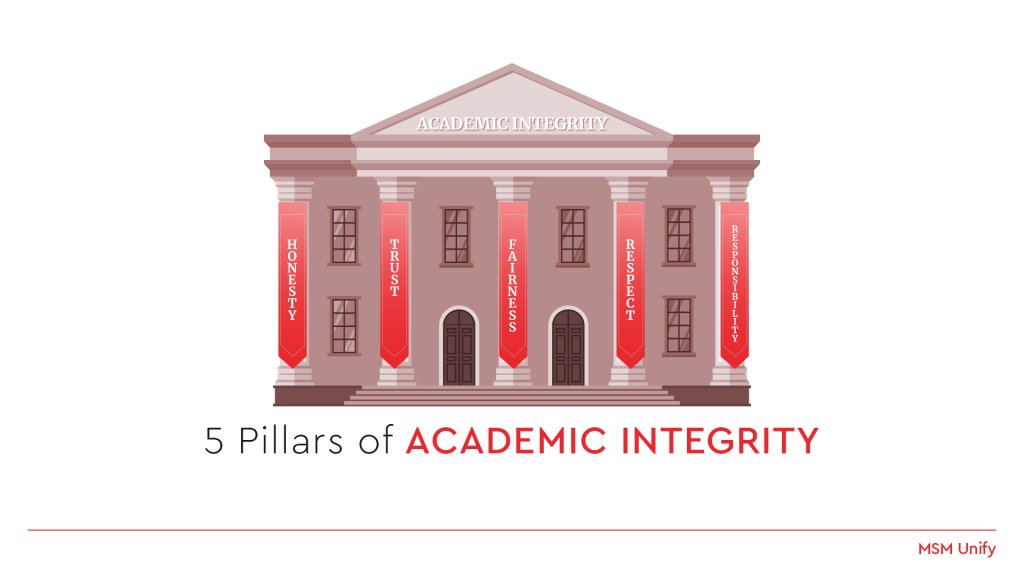
Honesty
Using the best of their abilities and knowledge, students must be sincere and honest in all types of academic work. This includes learning, researching and even teaching.
Trust
The academic institution and its students must foster trust to encourage free and fair exchange of ideas during the school year. Trust also makes working relationships during study abroad convenient and efficient.
Fairness
As with trust, professors and administrators must treat the students fairly in all aspects. There must be no form of favoritism as the same standard will be used for the entire academic community.
Respect
Students must show respect to their professors and instructors at all times. This is done by listening well in class, being prepared before coming to class or finishing projects and school tasks by deadline. In return, professors show respect by giving honest and fair feedback so that students will become the best they can be.
Responsibility
Being accountable to all actions and submissions during the study means taking responsibility. This also means being able to uphold agreements and take action for mistakes incurred along the way.
How to Instill it?
Maintaining academic integrity is challenging for professors and administrators. Even more at present, with the shift to online learning has made it more difficult to monitor the credibility of academic submissions6. There are file sharing sites that give a leeway to contract cheating among international students7.
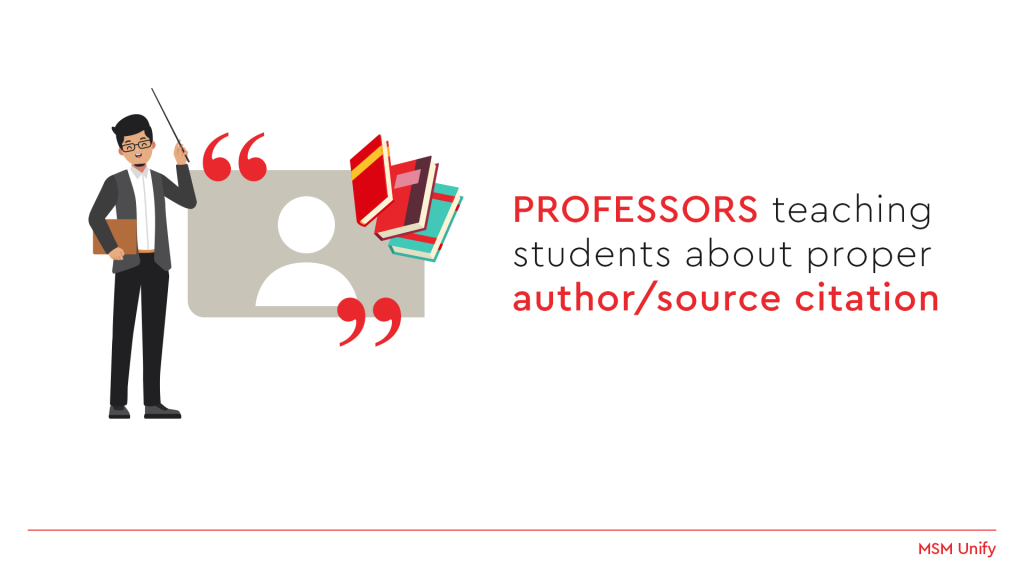
Educate the students
That is why it is always best to remind and inform students about the importance of academic integrity at all times. Educating students about the policies, styles of citation and even the Honor System of a particular institution is the first thing to d. For a more straightforward approach, having students sign a pledge with regards to academic integrity can be done to make it more concrete. Being transparent at the start goes a long way.
Involve students in setting up objectives
One way for students to get a feel for and put more importance in the policies that concern academic integrity is having them participate. For the learning activities, students can voice their thoughts and apply what they know of academic integrity.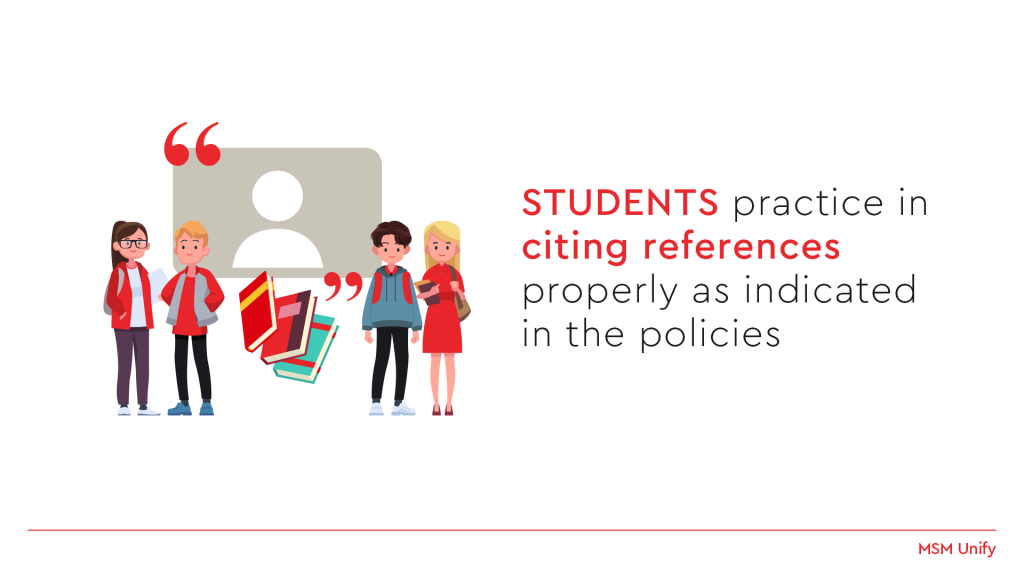
Practice makes perfect
When students are fully informed and involved in the objectives of each course, letting them practice in citing their information sources is best. They can gather as much information as they can, but they need to be specific with the author of the literature. Submissions must be thoroughly checked as words and topics not discussed in class can be partly indicative of contract cheating. Another way to check a student’s learning progress is through oral examinations.
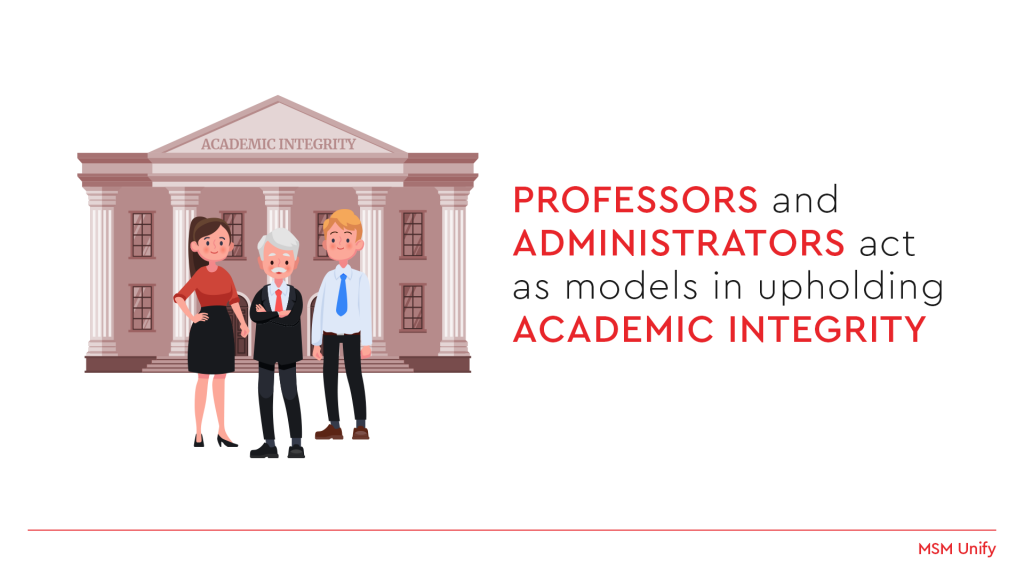
For a fair way of upholding academic integrity in class, professors and administrators should also be models. Citing text and image sources properly is one way students can apply what they learn.
Importance of Academic Integrity in International Students
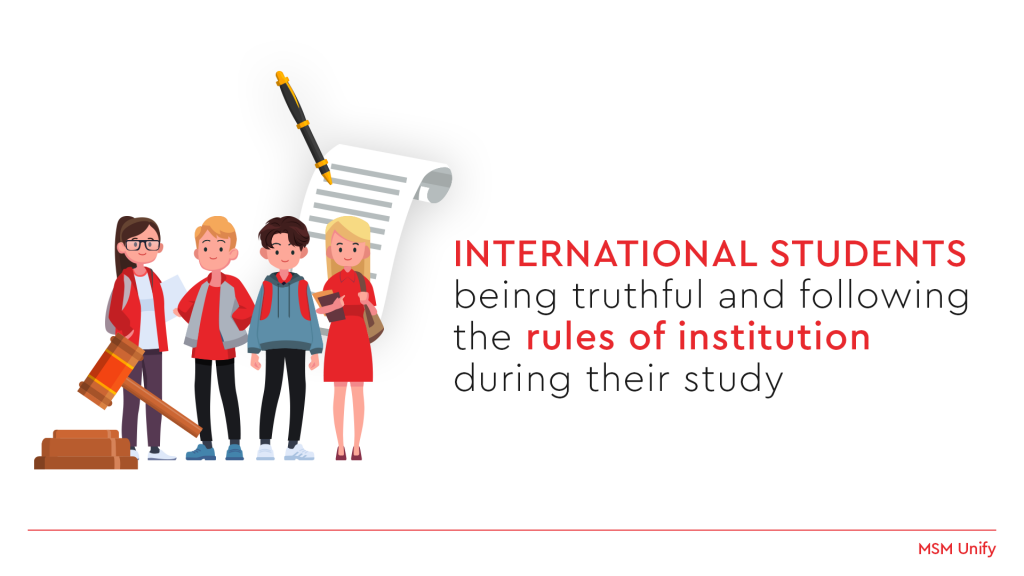
By following the pillars of academic integrity, students can showcase their true skills and knowledge – not presenting other people’s work as their own. This is very important as it reflects the kind of person he or she is. If cultural differences are in the way, it is best to consult with the professor in charge of the program to better guide students on how to achieve academic integrity. Being proactive goes a long way. Studying a particular field hones and prepares any student of the career path he or she will take.
Each higher education institution has different policies and procedures regarding academic integrity. It is best if students learn about them and follow them during the entire course of study. Penalties are given to those who do not embody all the pillars of academic integrity – from failing a course to being expelled from the institution. And this is a huge concern because studying abroad itself is like dipping one foot in fire. A lot of effort and money have been invested in this dream and being reckless will only put all of these to waste.
Demonstrating academic integrity goes a long way into a student’s future employment. If during the course of study students exhibited honesty, fairness, respect, trust and responsibility, no doubt they will have a fruitful career in their chosen workplace.
MSM Unify is your partner in availing resources for international study. It is a complete platform connecting higher education institutions to students and agents. Subscribe to get the latest updates between institutions and international students to achieve their career goals in life.

